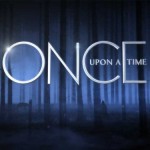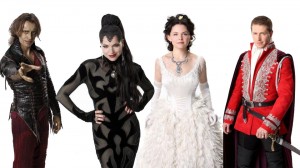 “What does it profit a man to gain the whole world and lose his soul?” is a question Jesus asked 2,000 years ago.
“What does it profit a man to gain the whole world and lose his soul?” is a question Jesus asked 2,000 years ago.
It’s a question storytellers have explored for just as long, most recently on the ABC series “Once Upon a Time” in an episode titled “Desperate Souls.”
 From “Beauty and the Beast” to to C.S. Lewis’ Narnia books, fairy tales provide us with engaging characters and stories, as well as occasional moral and spiritual lessons. “Once Upon a Time” follows that tradition by delving into the lives of just about every fairy tale character you’ve ever heard of, but with a lot more detail, complexity and backstory. The premise is that the Evil Queen, in order to get revenge on Snow White and Prince Charming, made a deal with the master of dark magic, Rumpelstiltskin, to put a curse on her entire kingdom that would transport them to a town in our world called Storybrooke, Maine, where they’re just ordinary citizens who don’t remember their pasts. The curse can only be undone by Emma, the daughter of Snow and the Prince from the fairy tale world, who they managed to save before the curse went into effect. Each episode of the series moves the story forward in Storybrooke, while also providing a look at the characters’ pasts.
From “Beauty and the Beast” to to C.S. Lewis’ Narnia books, fairy tales provide us with engaging characters and stories, as well as occasional moral and spiritual lessons. “Once Upon a Time” follows that tradition by delving into the lives of just about every fairy tale character you’ve ever heard of, but with a lot more detail, complexity and backstory. The premise is that the Evil Queen, in order to get revenge on Snow White and Prince Charming, made a deal with the master of dark magic, Rumpelstiltskin, to put a curse on her entire kingdom that would transport them to a town in our world called Storybrooke, Maine, where they’re just ordinary citizens who don’t remember their pasts. The curse can only be undone by Emma, the daughter of Snow and the Prince from the fairy tale world, who they managed to save before the curse went into effect. Each episode of the series moves the story forward in Storybrooke, while also providing a look at the characters’ pasts.
The “Desperate Souls” episode highlighted Rumpelstiltskin, brilliantly played by Robert Carlyle who effortlessly manages to segue from maniacal to sinister to sympathetic. Heretofore, we’d only seen him as a dangerous, manipulative, occasionally-out-of-his-mind figure. In a complete reversal of form, we discover that, in his early days, he was a kind, but cowardly villager who had run away from his troop while fighting in the Ogre War, resulting in the deaths of all his fellow soldiers. As a result, Rumpelstiltskin has no wife, no friends, no money and no power. His sole relationship is with his son who will soon be taken by the Duke’s knights to fight in the Ogre War too.
While escaping from the village with his son so the Duke’s knights can’t find them, Rumpelstiltskin encounters a kind beggar who suggests he choose a different path than running away. “Choice?” asks Rumpelstiltskin. “What choice do I have?”
“Everyone has a choice,” responds the beggar. He then tells Rumpelstiltskin how he can break into the Duke’s castle and steal a mystical dagger that will give him the unlimited magical power of a figure called the Dark One, provided he kill the current Dark One with the dagger.
Enticed by this idea, Rumpelstiltskin even tells his son about it, explaining that he could accomplish a lot of good with this power. Determined to do just that, Rumpelstiltskin steals the dagger, finds the Dark One, and stabs him in the heart. As the Dark One is dying, he reveals himself to be the beggar that had told Rumpelstiltskin what to do. Rumpelstiltskin is perplexed about why this man of power would arrange for his own murder. The beggar/Dark One explains, “My life was such a burden. You’ll see. Magic always comes with a price. Now it’s yours to pay.”
When Rumpelstiltskin returns to the village to save his son from the war, his fear and timidity have been replaced by arrogance and hatred. His physical features have started turning ugly as well, reflecting the new distortion in his soul. He mercilessly slaughters the knights who are there to take his son. But instead of being thankful, his son is horrified and scared at the person his father has become.
“Once Upon a Time” was created by Edward Kitsis and Adam Horowitz who were members of the “Lost” writing staff for most of that show’s run. With that pedigree, these guys have a handle on telling stories that involve good, evil, love, loss, sin and redemption – all with characters you genuinely come to care about. This episode – written by TV veteran Jane Espenson – explores a number of themes, not the least of which is the use of magic. Throughout the series, whenever someone makes a deal with Rumpelstiltskin to use magic to achieve some desired end, there’s always the warning that magic has “a price.” No matter how noble a person’s intentions, the use of magic brings about some unintended negative consequence. That’s exactly what happened with Rumpelstiltskin.
Here was a seemingly decent, nonviolent man who loved his son and wanted to gain power to use it for good. But when he got his particular brand of power through murder, the noblest parts of him were overwhelmed. He gained the power he wanted, but lost his soul, represented by the love and respect of his son.
Applied to the real world, it could be compared to compromising our principles or doing something we know is wrong to further a positive goal. No matter how good our intentions are, something in us gets twisted by using the wrong methods. Consider a politician, a corporate executive or a clergy member that may have made the news for some scandal in which they were involved. Chances are they got into their chosen professions with the intention of doing some good – being a public servant, supporting a family, loving God and neighbor. But somewhere along the way, the good intentions started getting subverted. Maybe it was a little compromise here, a little cheating there. What’s the harm, they might have thought?
The cumulative effect of compromising principles, however, is harm. It may not be noticeable at first, but damage is being done, not just to other people but to the soul of the person doing the compromising. And if we’re honest with ourselves, sometimes that person is ‘us.’ You and me. We’re not immune from the world’s temptations just because we call ourselves Christians. We’re just as susceptible to greed, pride, or the lust for power as anyone else if we don’t stay aware of our choices, if we don’t stay connected to the Source of all life and truth through our faith. The Scriptures we hear at Mass or read on our own are an important way to maintain this self-awareness. It’s also a help when stories in popular culture can remind us of the same thing, like “Once Upon a Time” does here.
Of course, as Christians we believe that everyone who goes astray has an opportunity for redemption due to the love of God. In a continuation of Rumpelstiltskin’s backstory entitled “Skin Deep,” he’s presented with an opportunity to choose love over fear and power. I won’t reveal how that episode ends, but I will say that making good choices can be very difficult after a long time spent making bad ones.
“Once Upon a Time” airs on ABC, Sundays at 8/7C.











